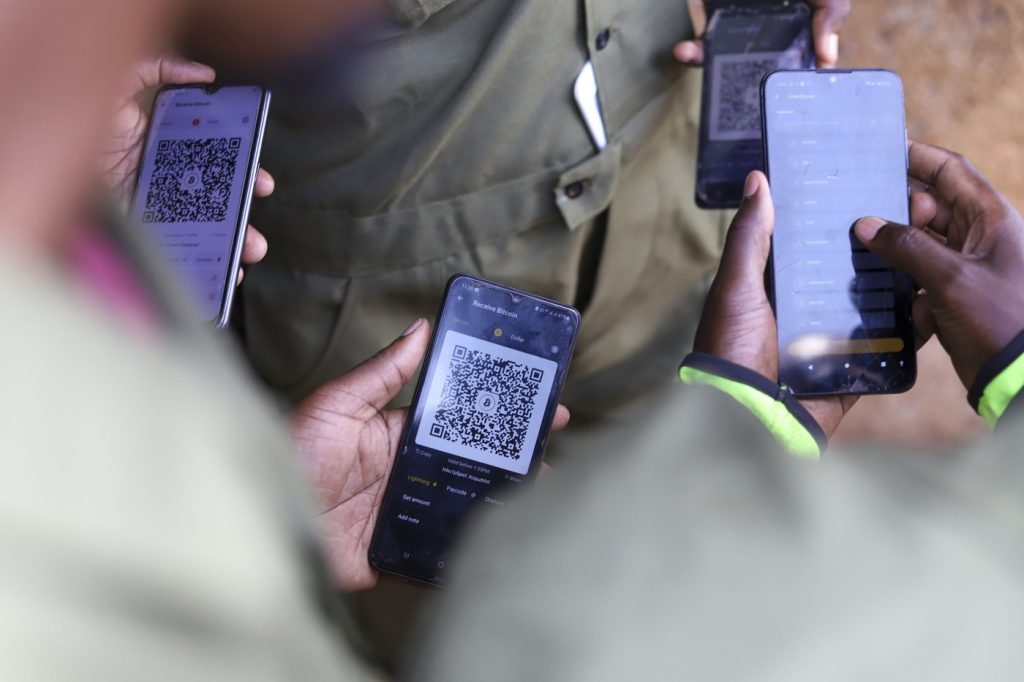KIBERA, Kenya (AP) — In what is often regarded as Africa's largest urban slum, Kibera, roadside stands selling vegetables are common. However, what makes them stand out is their acceptance of bitcoin as a form of payment. This innovative approach is part of a broader initiative aimed at extending financial services to one of Kenya's poorest and most under-banked areas, particularly in the Soweto West neighborhood, where around 200 residents actively use bitcoin.
The initiative, led by AfriBit Africa, a Kenyan fintech organization, is designed to improve financial inclusion within the community. Co-founder Ronnie Mdawida, a former community worker, highlighted that many individuals in Kibera struggle to secure their financial lives through traditional savings methods. By utilizing bitcoin, residents can open a digital wallet without the need for formal banking documentation, ultimately paving the way for greater financial autonomy.
Bitcoin has gained recognition since its creation in 2009, born out of the global financial crisis as a decentralized digital asset. Although it has become popular as a store of value akin to digital gold, its wild price fluctuations and lack of regulation raise concerns among experts.
AfriBit Africa introduced bitcoin to Soweto West in early 2022 by distributing crypto-denominated grants to local waste collectors, who are frequently funded by nonprofit organizations. These groups consist primarily of young adults who are deemed more receptive to adopting new technologies.
After completing cleaning activities on Sundays, garbage collectors receive their payment in bitcoin, which AfriBit Africa estimates to total about $10,000 infused into the community so far. This unique approach not only facilitates payment but has also made local garbage collectors key figures in spreading awareness and usage of bitcoin among residents. Given that many individuals in Kibera earn only about one dollar a day, this novel payment method has become attractive.
Some local merchants and motorcycle taxi operators have also begun accepting bitcoin payments. Damiano Magak, a 23-year-old garbage collector and food seller, expressed his preference for bitcoin over M-PESA—the predominant mobile money platform in Kenya—citing lower transaction fees and faster processing times as his reasons. While M-PESA offers fee-free transactions for amounts up to 100 Kenyan shillings (approximately 78 cents), fees subsequently increase with the transaction size. In contrast, AfriBit Africa introduced a platform that allows free transactions on the Lightning bitcoin network.
Another garbage collector, 30-year-old Onesmus Many, noted that using a bitcoin wallet enhances his financial security compared to holding cash, particularly due to crime risks in the area. Several merchants, including Dotea Anyim, who runs a vegetable stand, have also seen benefits in accepting bitcoin. She reported that roughly 10% of her customers pay with crypto, allowing her to save the bitcoin for future restocking instead of converting it to cash.
The potential for bitcoin prices to increase further is enticing for many in Soweto West. Both Magak and Many stated that they now keep roughly 70% to 80% of their net worth in bitcoin, a level of exposure significantly higher than typical. Magak expressed that betting on bitcoin is a risk he’s willing to take.
However, concerns arise from Ali Hussein Kassim, a fintech entrepreneur and chair of the FinTech Alliance in Kenya. He highlighted that holding such a high percentage of wealth in a volatile asset like bitcoin poses significant risks, particularly for vulnerable communities. Kassim acknowledged the potential benefits of digital assets for cheaper cross-border payments but questioned their practicality for residents of Kibera, citing that bitcoin’s volatility could outweigh transaction cost savings.
Despite these warnings, Mdawida remains optimistic about bitcoin's unregulated nature, asserting that the risks are part of the journey towards financial empowerment. AfriBit Africa is committed to educating the community on bitcoin and financial literacy.
While experiments to implement bitcoin in developing nations, such as El Salvador and the Central African Republic, have faced setbacks, AfriBit Africa's project in Kibera continues to operate despite legal and regulatory challenges surrounding cryptocurrency in Kenya. For residents like Magak, the allure of bitcoin remains strong, as he keeps track of market fluctuations with hopes for future gains.










